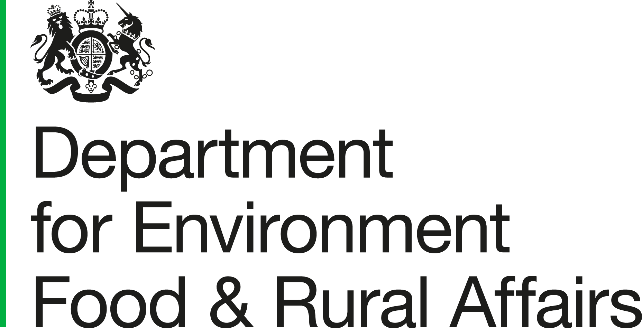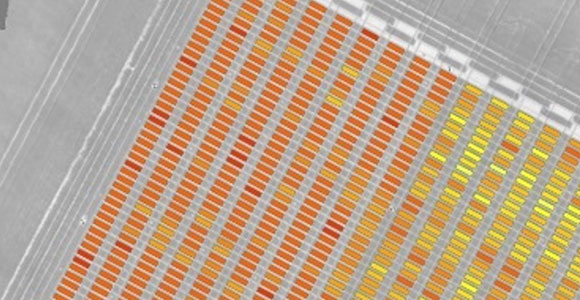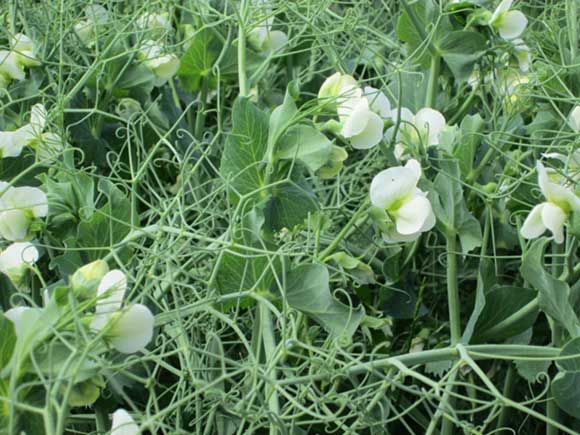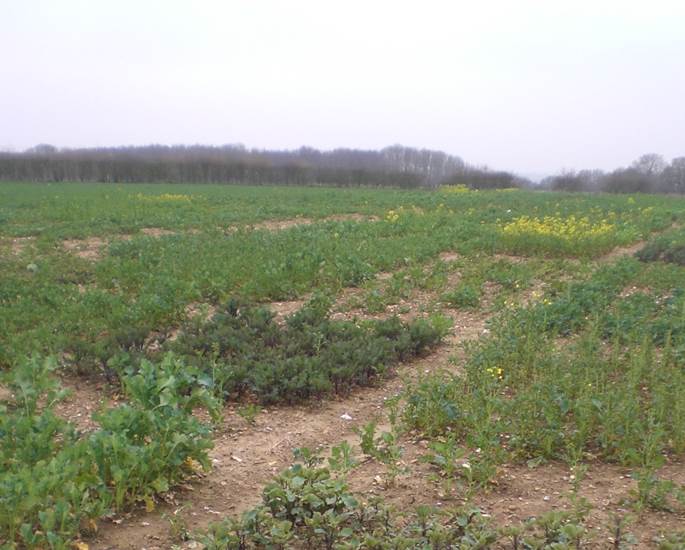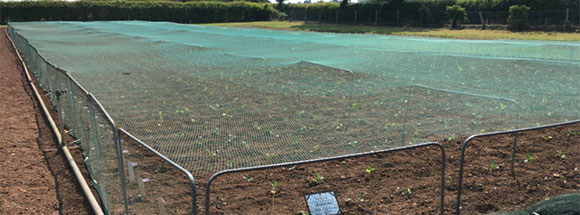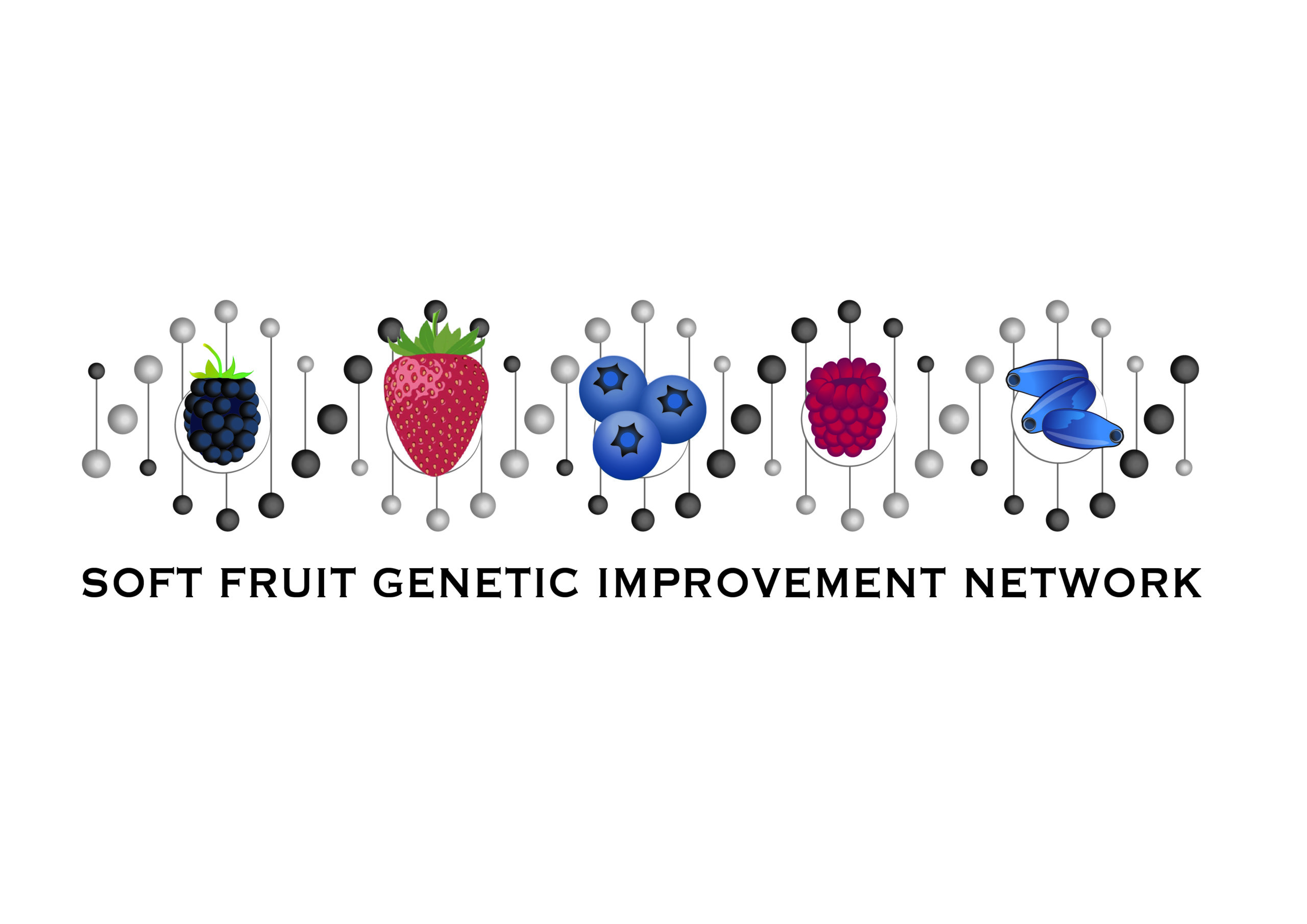
Defra Crop Genetic Improvement Platform
Defra supports the crop Genetic Improvement Networks (GINs) to improve major UK crop varieties and boost UK food security. In July 2024, Defra launched the latest round of this flagship crop research programme, which will support crop pre-breeding research over the next 5 years.
The programme consists of five GINs targeting key UK crops covering oilseeds, pulses, soft fruit, vegetables and wheat. The GINs aim to deliver public good benefit through targeting key genetic traits to enhance the productivity, sustainability, and resilience of these major UK crops.
The GINs draw upon genetic resources in UK gene banks and diversity collections to develop tools to help breeders incorporate beneficial genes into elite varieties. Within the GINs, Defra is also funding research into underutilised/novel crops and using precision breeding to unlock innovation in crop breeding.
Wheat Genetic Improvement Network
WGIN provides genetic and molecular resources for research in other Defra projects and for a wide range of wheat research projects in the UK. The resources under development include wheat genetic stocks, mapping populations, molecular markers and marker technologies, trait identification and evaluation, genomics and bioinformatics. In WGIN phase 5, we have included research on two underutilised cereal crops in the UK, namely triticale (a hybrid between wheat and rye) and durum wheat. We are also using precision breeding to unlock innovation in crop breeding.
Upcoming and recent events
5 February 2025: The 2025 WGIN Stakeholders’ Meeting took place as a hybrid event at the JIC on 5th February. The event was BASIS points registered and by targeted advertising we ensured high participation by farmers, farm advisors, agronomists and commercial wheat breeding companies. The main purpose of this 22nd WGIN stakeholder event was to explain the different research, technical and resources aspects of this new 5-year project and the range of public good benefits to be delivered. An initial summary overview oral presentations was followed by topic-specific oral presentations given by nine different funded team members, based at Rothamsted, John Innes Centre, NIAB and the Met Office. Additional presentations were given by AHDB on wheat crop economics and major production issues in the UK and globally and by ADAS on the Defra-funded UK on farm Survey of Crop Pests and Diseases project. There was also a fireside chat on ‘Climate Change from the Farmers’ perspective’, involving two farmers in conversation with the leader of the BOFIN group. In the final part of the afternoon there was a one-hour chaired discussion on developing new project ideas for hexaploid wheat, durum wheat and/or triticale through aligning them to WGIN 5. In total ~130 attendees took part in the Stakeholders’ Meeting for the entire day, with very good industry representation. The whole meeting was recorded and will be available from the WGIN website in the near future.
6 February 2026: The WGIN Stakeholder Meeting at NIAB, Cambridge with an online attendance option. Please contact Mike Hammond-Kosack (wgin.defra@rothamsted.ac.uk) to register interest.
Pulse Crop Genetic Improvement Network
The 2025–2029 programme of the Pulse Crop Genetic Improvement Network will continue research on diseases and nutritional traits in pea and faba bean, while also investing in genetic improvement of lentil and common bean (Phaseolus) for UK cultivation. In addition, we will collaborate with the Met Office to address future challenges from climate change; and establish a service pipeline for gene editing of faba bean and pea. PCGIN is led by the John Innes Centre with its partner organizations University of Reading, NIAB in Cambridge, IBERS in Aberystwyth and PGRO.
Links
Upcoming and recent events
27 February 2025: PCGIN Stakeholder Meeting at Kew Gardens. Please contact Leigh Newby (pcgin@jic.ac.uk) to register interest.
3–4 June 2025: Legumes Science and Practice 3, organised by AAB. A two day meeting with talks and discussion sessions on the topic of growing legumes in the UK as a source of protein, including using intercropping to reduce nitrogen inputs.
Oilseed Rape Genetic Improvement Network
The overall aim of the Defra Oilseeds Genetic Improvement Network is to underpin the genetic improvement of UK oilseed crops by:
- Maintaining and expanding interactions between stakeholders and academics
- Providing freely available physical resources to underpin rapeseed breeding (Brassica napus diversity lines and pathogen accessions)
- Providing freely available information resources to underpin rapeseed breeding (including molecular marker and trait data)
- Pre-breeding to produce and assess novel genetic variation in winter oilseed rape (relating to environmental resilience, particularly genetic sources of resistance ot pests, diseases and extreme weather)
- Evaluating the application of “precision breeding” in winter oilseed rape (both Genome Editing and genomics-assisted approaches)
- Evaluating the prospects for alternative oilseed crops for commercial cultivation in the UK (sunflower and oilseed hemp)
Links
Vegetable Genetic Improvement Network
warwick.ac.uk/fac/sci/lifesci/research/vegin
The Vegetable Genetic Improvement Network (VeGIN) was initiated with funding from Defra. The network brings together research focused on key vegetable crops and encourages collaborations between industry and researchers to address how genetic improvement of crop varieties can contribute to a sustainable increase in food production to meet the twin challenges of food security and climate change. Key contributions are being delivered by both the University of Warwick and Harper Adams University. Industrial partners play an invaluable role and provide feedback on the work being undertaken.
VeGIN brings together research on the genetic improvement of carrot, onion, leafy vegetables and salads. It benefits from knowledge arising from satellite projects funded by industry and other government funders and provide underpinning resources for such projects. The major UK vegetable crops – Brassica, lettuce, carrot and onion – are substantial components of the UK farming industry. These all make an important contribution to a healthy UK diet and contribute to our food security.
The aims of VeGIN are:
- To develop the genetic resources and tools to accelerate breeding for “sustainability traits” in field vegetables
- To establish an effective network with industry, for knowledge transfer to promote market delivery of R&D
Soft Fruit Genetic Improvement Network
The Soft Fruit GIN will initially focus on three main berry crop species (strawberry, raspberry and blueberry) and two minor berry species (honeyberry and blackberry).
Key objectives include:
- determination of genetic loci or markers associated with water use efficiency in strawberry, nutrient use efficiency in blueberry, and resistance to aphid in raspberry;
- development of genetics/genomics resources for honeyberry and blackberry;
- development of data management tools for improved data security, integrity, analysis and interpretation; and
- establishment and validation of DNA-free precision gene editing tools for strawberry and raspberry.
In parallel to the research activities, we will work closely with all stakeholders, particularly growers, breeders and researchers to ensure effective communications in research strategic areas, progresses, outcomes, and impacts, in developing future R&D funding to accelerate the impact of the GIN outcomes.
Links
Press release on the launch of SFGIN
Upcoming and recent events
28 November 2024: The SFGIN project was presented in the NIAB Soft Fruit Day.
16–21 March 2025: SFGIN will be presented in the 10th International Strawberry Symposium in China.
